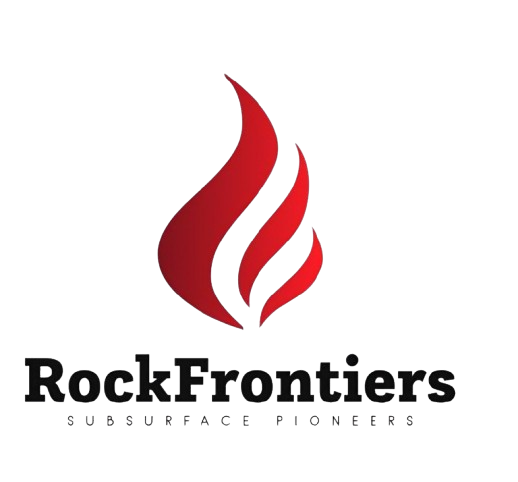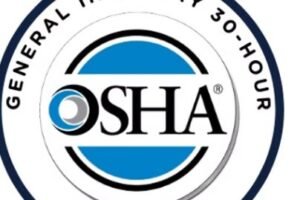🛑 Well Abandonment – Plug, Abandonment and Decommissioning
🌟 Course Description This intensive course covers the full lifecycle of well abandonment, including the design, execution, and regulatory aspects of plugging, abandonment, and decommissioning (P&A) of oil and gas wells. Participants will gain practical knowledge of international standards, engineering …
Overview
🌟 Course Description
This intensive course covers the full lifecycle of well abandonment, including the design, execution, and regulatory aspects of plugging, abandonment, and decommissioning (P&A) of oil and gas wells. Participants will gain practical knowledge of international standards, engineering practices, risk assessments, well barrier design, environmental considerations, and the latest technologies for safe and cost-effective well abandonment operations.
🎯 Learning Objectives
✅ Understand the regulatory and environmental requirements for well abandonment
✅ Design permanent well barriers and P&A programs
✅ Identify and mitigate risks associated with abandonment operations
✅ Learn operational best practices and well control during P&A
✅ Apply standards like NORSOK D-010, API, and ISO guidelines
✅ Develop strategies for cost-effective decommissioning of platforms and subsea wells
👥 Who Should Attend
-
Well engineers, drilling and completion engineers
-
Well integrity and intervention specialists
-
HSE professionals involved in abandonment projects
-
Asset managers and project planners
-
Regulators and government agencies overseeing P&A
-
Anyone involved in well decommissioning planning and execution
🗂️ Training Format
✅ Expert lectures with real industry examples
✅ Workshops on barrier design and risk assessment
✅ Group exercises on P&A planning
✅ Video case studies of successful and failed abandonments
✅ Interactive discussions and knowledge sharing
📅 Detailed Daily Agenda with Time Breaks
📅 Day 1: Fundamentals of Well Abandonment
| Time | Topic |
|---|---|
| 08:30 – 09:00 | Welcome, Introductions & Course Objectives |
| 09:00 – 10:30 | Principles of Well Abandonment & Lifecycle Overview |
| 10:30 – 10:45 | ☕ Coffee Break |
| 10:45 – 12:15 | Regulatory Requirements & International Standards |
| 12:15 – 13:15 | 🍽 Lunch |
| 13:15 – 14:45 | Types of Abandonments: Temporary, Permanent, Suspensions |
| 14:45 – 15:00 | ☕ Coffee Break |
| 15:00 – 16:30 | Well Integrity & Key Elements of Well Barrier Philosophy |
📅 Day 2: Well Barrier Design and Verification
| Time | Topic |
|---|---|
| 08:30 – 10:00 | Fundamentals of Well Barrier Design |
| 10:00 – 10:15 | ☕ Coffee Break |
| 10:15 – 12:15 | Materials for Barriers: Cement, Mechanical Plugs, Resins |
| 12:15 – 13:15 | 🍽 Lunch |
| 13:15 – 14:45 | Placement Techniques and Verification Methods |
| 14:45 – 15:00 | ☕ Coffee Break |
| 15:00 – 16:30 | Barrier Integrity Testing and Acceptance Criteria |
📅 Day 3: Operational Aspects of Plug & Abandonment
| Time | Topic |
|---|---|
| 08:30 – 10:00 | Planning and Engineering of P&A Operations |
| 10:00 – 10:15 | ☕ Coffee Break |
| 10:15 – 12:15 | Well Control Considerations During Abandonment |
| 12:15 – 13:15 | 🍽 Lunch |
| 13:15 – 14:45 | Cutting, Milling, and Section Milling of Casing |
| 14:45 – 15:00 | ☕ Coffee Break |
| 15:00 – 16:30 | Offshore and Subsea Well Abandonment Challenges |
📅 Day 4: Environmental & Risk Considerations
| Time | Topic |
|---|---|
| 08:30 – 10:00 | Environmental Impact of Well Abandonment |
| 10:00 – 10:15 | ☕ Coffee Break |
| 10:15 – 12:15 | Risk Assessment and Mitigation Strategies |
| 12:15 – 13:15 | 🍽 Lunch |
| 13:15 – 14:45 | Regulatory Reporting and Documentation Requirements |
| 14:45 – 15:00 | ☕ Coffee Break |
| 15:00 – 16:30 | Decommissioning Planning for Surface and Subsea Equipment |
📅 Day 5: Advanced Techniques & Case Studies
| Time | Topic |
|---|---|
| 08:30 – 10:00 | Advanced Tools and Technologies for P&A |
| 10:00 – 10:15 | ☕ Coffee Break |
| 10:15 – 12:15 | Case Studies: Successful and Failed Abandonments |
| 12:15 – 13:15 | 🍽 Lunch |
| 13:15 – 14:45 | Economic Considerations and Cost Optimization |
| 14:45 – 15:00 | ☕ Coffee Break |
| 15:00 – 16:30 | Workshop: Building an Effective P&A Program & Wrap-Up |
📦 Materials Provided
✅ Comprehensive course manual and slides
✅ Plug and abandonment planning templates
✅ Barrier verification checklists
✅ Case study videos and examples
✅ Certificate of Completion
Target audiences
- Reservoir Engineers, Geologists
You May Like
📘 Underbalanced Drilling (UBD) Techniques and Safety
🎯 Course Description: This intensive 5-day program focuses on Underbalanced Drilling (UBD) – an advanced technique used to drill wells where the hydrostatic pressure of the fluid is intentionally kept below formation pressure. Participants will learn how to implement UBD …
📘 IOSH Managing Safely
🎯 Course Description: A practical, 5-day program designed to help managers and supervisors learn how to manage safety and environmental responsibilities in their teams. Emphasis is placed on identifying risks, measuring performance, and leading safely using internationally recognized good practices. …
📘 IWCF Level 3 Well Control (Surface BOP)
🎯 Course Description: This is an intensive course aimed at drilling / well service personnel needing to gain supervisory competence in well control using surface blow‑out preventers (BOP) under the IWCF standard. It covers theory, hands‑on practice, and assessments for …
Advanced Specialist Petroleum GeoMechanics
📘 Course Description: This elite-level course is tailored for petroleum geomechanics specialists and senior subsurface professionals engaged in complex field development projects. It provides a deep technical dive into stress modeling, anisotropic rock behavior, coupled geomechanical-reservoir simulation, fault/fracture mechanics, and …
📘 OSHA 30‑Hour General Industry Safety and Health
🎯 Course Description: This 5‑day course provides in‐depth knowledge of workplace safety and health in general industry sectors. It covers OSHA regulations, hazard recognition, safety programs, and industry best practices. Participants will gain the expertise needed to maintain a safe …






